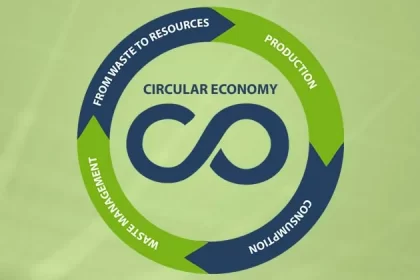In today’s digital landscape, Chrome extensions have become an integral part of enhancing browser functionality and user experience. As businesses and organizations seek to leverage these powerful tools, the demand for skilled Chrome extension developers has skyrocketed. However, finding and recruiting the right talent for your Chrome projects can be a challenging task.
When you hire chrome extension developers, you’re not just looking for programmers; you’re seeking experts who understand the intricacies of browser functionality, user interface design, and the specific requirements of the Chrome ecosystem. This article will guide you through the process of recruiting expert developers for your Chrome projects, ensuring you find the right talent to bring your vision to life.
Understanding the Chrome extension development landscape
Before diving into the recruitment process, it’s crucial to understand the unique skills and knowledge required for Chrome extension development. Chrome extensions are built using web technologies such as HTML, CSS, and JavaScript, but they also require a deep understanding of Chrome’s extension API and the browser’s security model.
Expert Chrome extension developers should be proficient in:
- JavaScript, HTML, and CSS
- Chrome Extension API
- Web security principles
- Cross-browser compatibility
- Performance optimization
- User interface design for browser extensions
Additionally, familiarity with modern web development frameworks and tools, such as React or Vue.js, can be a significant advantage in creating more complex and feature-rich extensions.
1. Defining your project requirements
The first step in recruiting expert developers for your Chrome project is to clearly define your requirements. Start by outlining the project scope and objectives, detailing the specific features and functionalities you need. Consider the target audience and use cases to ensure the project aligns with user needs. Additionally, establish clear timeline and budget constraints, as well as any integration requirements with existing systems. A well-defined project brief will not only help you attract the right candidates but also enable you to assess their suitability more effectively during the recruitment process.
2. Sourcing candidates
There are several channels you can explore to find expert Chrome extension developers:
- Online job boards and tech-specific job sites
- Developer communities and forums
- LinkedIn and other professional networking platforms
- Referrals from other developers or industry contacts
- Tech meetups and conferences
- Freelance platforms specializing in development talent
When posting job listings or reaching out to potential candidates, be sure to highlight the unique aspects of your project and the opportunities it presents for professional growth and innovation.
3. Screening and interviewing candidates
Once you’ve gathered a pool of potential candidates, the next step is to screen and evaluate them to find the best fit for your project. Begin with a thorough review of resumes and portfolios, focusing on relevant experience in Chrome extension development and similar projects. Follow this with a technical assessment, such as coding tests or assignments specifically tailored to Chrome extension development, to evaluate practical skills.
The interview process should include both technical and behavioral components to assess candidates’ knowledge, problem-solving abilities, and cultural fit. Additionally, reference checks are essential to verify the candidate’s work history and performance by speaking with previous employers or clients.
Throughout the evaluation process, prioritize candidates who exhibit a strong understanding of Chrome’s extension architecture and best practices, along with experience in relevant technologies and tools. Look for problem-solving skills, attention to detail in user experience and security, and effective communication abilities, which are crucial for collaborative work.
3.1 Assessing technical skills
When evaluating a candidate’s technical skills for Chrome extension development, consider the following areas:
- Proficiency in JavaScript, HTML, and CSS
- Understanding of Chrome’s extension API and manifest file structure
- Experience with background scripts, content scripts, and popup interfaces
- Knowledge of web security best practices, including cross-site scripting (XSS) prevention
- Familiarity with performance optimization techniques for browser extensions
- Experience with version control systems like Git
- Understanding of browser compatibility issues and how to address them
3.2 Evaluating soft skills
While technical expertise is crucial, soft skills play a significant role in a developer’s success, especially in collaborative projects. Look for candidates who demonstrate:
- Strong communication skills, both written and verbal
- Ability to explain complex technical concepts to non-technical stakeholders
- Problem-solving and critical thinking abilities
- Time management and organizational skills
- Adaptability and willingness to learn new technologies
- Passion for creating user-friendly and innovative solutions
4. Making the offer
Once you’ve identified the ideal candidate for your Chrome extension project, it’s time to craft and present an offer. Start by proposing a competitive salary that reflects the candidate’s experience and aligns with market rates. Highlight opportunities for professional development and growth to demonstrate your commitment to their career advancement.
If applicable, include flexible work arrangements to appeal to modern workplace preferences. Clearly outline project expectations and timelines to set the stage for a productive collaboration. Additionally, mention any unique perks or benefits your company offers to make the offer more attractive.
Be ready to negotiate and remain flexible, as top talent often has multiple opportunities to consider.
5. Onboarding and integration
After successfully recruiting an expert Chrome extension developer, ensure a smooth onboarding process to set them up for success. Start by providing comprehensive documentation of your project requirements and the existing codebase. Introduce them to key team members and stakeholders to foster collaboration.
Next, set up the necessary development environments and tools to ensure they can begin work efficiently. Establish clear communication channels and project management processes to keep everyone aligned. Schedule regular check-ins to address any questions or concerns that may arise.
Remember that the recruitment process is just the beginning. Fostering a positive work environment, providing opportunities for growth, and maintaining open lines of communication are key to retaining top talent and ensuring the long-term success of your Chrome extension projects.
If you’re looking for a reliable partner in Chrome extension development, consider working with a reputable software development house that specializes in browser extension projects. Their expertise and experience can be invaluable in bringing your Chrome extension ideas to fruition.









